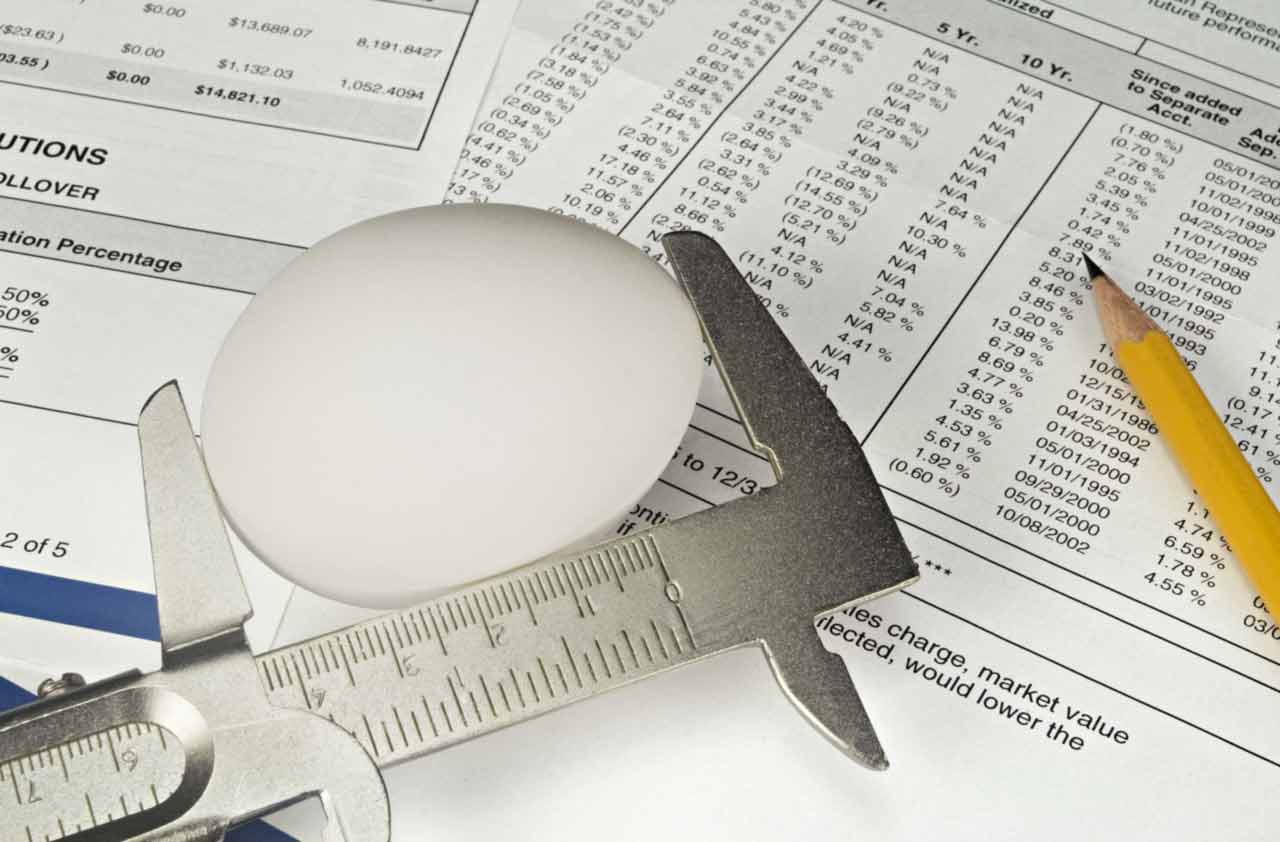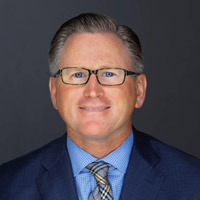Retirement Success Isn't About Net Worth, It's About Net Income
If you're wondering if you have enough saved to retire, you won't find the answer to that critical question on the bottom of your 401(k) statement.


Profit and prosper with the best of Kiplinger's advice on investing, taxes, retirement, personal finance and much more. Delivered daily. Enter your email in the box and click Sign Me Up.
You are now subscribed
Your newsletter sign-up was successful
Want to add more newsletters?

Delivered daily
Kiplinger Today
Profit and prosper with the best of Kiplinger's advice on investing, taxes, retirement, personal finance and much more delivered daily. Smart money moves start here.

Sent five days a week
Kiplinger A Step Ahead
Get practical help to make better financial decisions in your everyday life, from spending to savings on top deals.

Delivered daily
Kiplinger Closing Bell
Get today's biggest financial and investing headlines delivered to your inbox every day the U.S. stock market is open.

Sent twice a week
Kiplinger Adviser Intel
Financial pros across the country share best practices and fresh tactics to preserve and grow your wealth.

Delivered weekly
Kiplinger Tax Tips
Trim your federal and state tax bills with practical tax-planning and tax-cutting strategies.

Sent twice a week
Kiplinger Retirement Tips
Your twice-a-week guide to planning and enjoying a financially secure and richly rewarding retirement

Sent bimonthly.
Kiplinger Adviser Angle
Insights for advisers, wealth managers and other financial professionals.

Sent twice a week
Kiplinger Investing Weekly
Your twice-a-week roundup of promising stocks, funds, companies and industries you should consider, ones you should avoid, and why.

Sent weekly for six weeks
Kiplinger Invest for Retirement
Your step-by-step six-part series on how to invest for retirement, from devising a successful strategy to exactly which investments to choose.
This isn’t your grandparents’ retirement.
America’s move from pensions to 401(k)s and IRAs has changed the way most workers think about their retirement money — and not for the better.
Traditional pensions were designed to provide participants with guaranteed income — and the people who have them typically think of their benefits in those terms. They know what their monthly pension check will be in retirement, or what percentage of their old salary it will provide. It’s something they can count on and plan around.
From just $107.88 $24.99 for Kiplinger Personal Finance
Become a smarter, better informed investor. Subscribe from just $107.88 $24.99, plus get up to 4 Special Issues

Sign up for Kiplinger’s Free Newsletters
Profit and prosper with the best of expert advice on investing, taxes, retirement, personal finance and more - straight to your e-mail.
Profit and prosper with the best of expert advice - straight to your e-mail.
Many savers flying blind
Ask pre-retirees about their IRA or 401(k), and they’ll probably tell you the amount on their last statement … if they opened it. As for what that number will translate to in retirement, they likely have no idea. And no plan.
That means many people who have spent their entire adult lives relying on a regular paycheck — knowing exactly how much it will be and exactly when it will go into the bank — are rushing toward retirement with no real strategy for how they’re going to replace that check when they leave their jobs.
A 401(k)’s focus is on accumulation, and from my experience savers, plan administrators and many financial professionals tend to frame things only in those terms. They talk about growth, asset allocation, risk and return, instead of how that money is going to serve as future income.
A plan for ‘permanent unemployment’
Accumulation is important when you’re young and trying to save as much as you can. But in retirement, that number at the bottom of your statement — whether it’s $500,000, $1 million or more — is mostly irrelevant … unless you know how you’re going to use it. What you really need is a dependable distribution plan that will ensure you can maintain the lifestyle you want for as long as you live.
I often tell people to think of retirement as “permanent unemployment” to push the point that they must make sure there’s always money coming in. Our firm has a process (we call it the “Retirement Fingerprint”) that solves that puzzle first, looking at all the possible income streams you might have to depend on and how to make the most of each:
- Social Security – Just about everyone collects Social Security, but there are many ways to maximize those benefits, depending on your individual needs.
- Pension – If you’re fortunate enough to have a pension, you likely have several options to consider before your retirement date, including a possible lump sum payout and survivor benefits.
- Investment savings – Most couples have at least one 401(k) or 403(b) account. Your plan should look at tax consequences, inflation and volatility in an effort to preserve those hard-earned dollars.
- Other investments – If you have real estate or other investments, even alternative solutions like annuities — they can play a critical part in your plan, by offering diversity and further income potential.
The goal should be to provide what we call “mailbox money” — reliable income that’s coming in every month. The happiest, most contented retirees I know are the ones who have that figured out.
A solid plan for an eventful life
I understand the fascination with growth, especially given that so many retirees say they are worried about outliving their money. They just want to be sure they have enough.
But without a plan, how will they know what enough is?
I’ve never seen a person in retirement go out and spend all his or her money in one day or one year. What really happens is that you withdraw more than you should early in retirement, or a market downturn leaves you shorter on funds than you thought you’d be, or an unexpected health problem uses up your savings, and you start compromising your lifestyle. You stop doing the things you wanted to do, or you can’t live where you want to live. And your life gets less eventful, year after year after year.
But if you have a solid plan, with reliable sources of income and a pecking order for where the money will come from, your basic lifestyle won’t be as vulnerable.
If you haven’t already, talk to an adviser — one who specializes in retirement — about putting together an income plan. Don’t try to go it alone. A professional will have access to solutions that you might not have even thought about. And he or she can help you make net income your priority instead of net worth.
Kim Franke-Folstad contributed to this article.
Guarantees provided by insurance products and annuities are backed by the financial strength and claims-paying ability of the issuing insurance carrier.
Profit and prosper with the best of Kiplinger's advice on investing, taxes, retirement, personal finance and much more. Delivered daily. Enter your email in the box and click Sign Me Up.

Shane Brosnan is a partner at BML Wealth Management in Irvine, Calif. He has more than 20 years of experience in the financial and insurance industry. Investment Advisory Services offered through Cooper Financial Group, an SEC Registered Investment Advisory firm. BML Wealth Management & Cooper Financial Group are not affiliated. California Insurance License # 0B66858.
-
 Quiz: Do You Know How to Avoid the "Medigap Trap?"
Quiz: Do You Know How to Avoid the "Medigap Trap?"Quiz Test your basic knowledge of the "Medigap Trap" in our quick quiz.
-
 5 Top Tax-Efficient Mutual Funds for Smarter Investing
5 Top Tax-Efficient Mutual Funds for Smarter InvestingMutual funds are many things, but "tax-friendly" usually isn't one of them. These are the exceptions.
-
 AI Sparks Existential Crisis for Software Stocks
AI Sparks Existential Crisis for Software StocksThe Kiplinger Letter Fears that SaaS subscription software could be rendered obsolete by artificial intelligence make investors jittery.
-
 Social Security Break-Even Math Is Helpful, But Don't Let It Dictate When You'll File
Social Security Break-Even Math Is Helpful, But Don't Let It Dictate When You'll FileYour Social Security break-even age tells you how long you'd need to live for delaying to pay off, but shouldn't be the sole basis for deciding when to claim.
-
 I'm an Opportunity Zone Pro: This Is How to Deliver Roth-Like Tax-Free Growth (Without Contribution Limits)
I'm an Opportunity Zone Pro: This Is How to Deliver Roth-Like Tax-Free Growth (Without Contribution Limits)Investors who combine Roth IRAs, the gold standard of tax-free savings, with qualified opportunity funds could enjoy decades of tax-free growth.
-
 One of the Most Powerful Wealth-Building Moves a Woman Can Make: A Midcareer Pivot
One of the Most Powerful Wealth-Building Moves a Woman Can Make: A Midcareer PivotIf it feels like you can't sustain what you're doing for the next 20 years, it's time for an honest look at what's draining you and what energizes you.
-
 I'm a Wealth Adviser Obsessed With Mahjong: Here Are 8 Ways It Can Teach Us How to Manage Our Money
I'm a Wealth Adviser Obsessed With Mahjong: Here Are 8 Ways It Can Teach Us How to Manage Our MoneyThis increasingly popular Chinese game can teach us not only how to help manage our money but also how important it is to connect with other people.
-
 Looking for a Financial Book That Won't Put Your Young Adult to Sleep? This One Makes 'Cents'
Looking for a Financial Book That Won't Put Your Young Adult to Sleep? This One Makes 'Cents'"Wealth Your Way" by Cosmo DeStefano offers a highly accessible guide for young adults and their parents on building wealth through simple, consistent habits.
-
 Global Uncertainty Has Investors Running Scared: This Is How Advisers Can Reassure Them
Global Uncertainty Has Investors Running Scared: This Is How Advisers Can Reassure ThemHow can advisers reassure clients nervous about their plans in an increasingly complex and rapidly changing world? This conversational framework provides the key.
-
 I'm a Real Estate Investing Pro: This Is How to Use 1031 Exchanges to Scale Up Your Real Estate Empire
I'm a Real Estate Investing Pro: This Is How to Use 1031 Exchanges to Scale Up Your Real Estate EmpireSmall rental properties can be excellent investments, but you can use 1031 exchanges to transition to commercial real estate for bigger wealth-building.
-
 Should You Jump on the Roth Conversion Bandwagon? A Financial Adviser Weighs In
Should You Jump on the Roth Conversion Bandwagon? A Financial Adviser Weighs InRoth conversions are all the rage, but what works well for one household can cause financial strain for another. This is what you should consider before moving ahead.